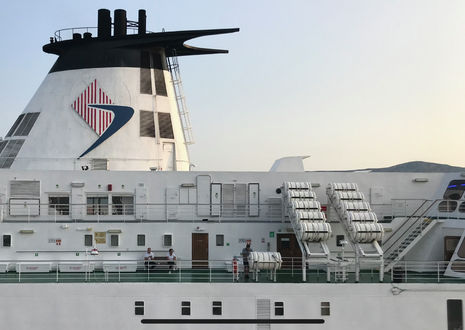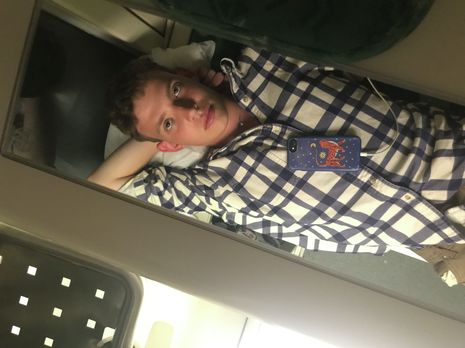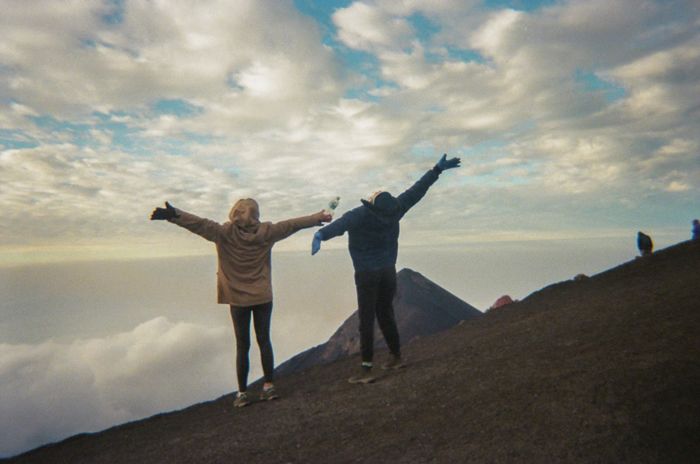In praise of slow travel
Relating his experience this past summer, Deputy Features Editor Alex Levy sets out his case for travel without planes, both for the environmental benefits but also for restoring a sense of patience and openness to experience

As I sat miserably in the corridor of the night train to Munich, head bumping gently against the walls and eyes glazed in the neon light, I began to question my life choices. And my degree. Earlier that night at Zagreb Station, a gruff ticket officer had informed me that there was “no train for Munich”. Further pleading revealed little, and I eventually found out that Deutsche Bahn were striking and so I would be deposited in Austria at 4am the following morning. I was exhausted and ill; my parents suggested I look for a hostel and a flight home the next day.
I was tempted, but couldn’t stomach the embarrassment. I had told too many people that that summer, for unavoidably smug environmental reasons, I would forgo planes and their flashy convenience wherever possible. So I boarded and tried to sleep. Already displeased that the country whose culture I’d chosen to study had shut me out, things only got worse in Ljubljana, when a gang of officious German backpackers entered the compartment. I heard them complain to each other in German that I was in the wrong bed, and half an hour later they asked me to leave . Not because of my un-German disregard for the seating allocations, however. I was “coughing too much”, they said, “it was corona time after all!” And they wanted to sleep, so the corridor it was - I gathered myself and left, muttering under my breath about vaccinations and negative lateral flows.
"I felt more than ever before that I had truly travelled, in a new sense of the word"
But night passed and I arrived in picturesque Sound-of-Music-Salzburg to see the pale light of dawn behind the mountains - the hills were alive and somehow so was I. Buying myself a fortifying pretzel I pressed on, and by some miracle was home that evening, by way of Brussels and Frankfurt. I dozed, read my book, quietly observed people and their conversations as changing landscapes, cities, and countries flashed by my window, and I felt more than ever before that I had truly travelled, in a new sense of the word.
To reach Croatia from Greece I had crossed the Adriatic to Italy. Leaving by sea was the closest I came to the enchantment of Lawrence Durrell’s Corfu, the lights of port towns like charms on the dark mass of the island, warm sea air whipping around me. I saw the island as he might have, not over the roar of airplane engines, but feeling beneath me the alien motions of the sea, a sensual reminder of the seafaring history of the place as we chugged on in the lee of Corfu and Albania.
A few days later I headed back east to Split, and instead of bumping innocuously to earth and being sped from another indistinguishable airport to the city centre, with the taste of Gatwick’s Pret still on my tongue, I gathered at dawn on the deck with fellow travellers, huddled with their morning coffee and cigarettes. The ship slowed and we watched green islands slide by, dark and magical, the boat’s torpor encouraging us to really take in where we were and the distance we had travelled from the blustery, wet Ancona we had left. As though rewarding us for our patience, the roofs and clock towers of Split came into view, warm and inviting in the morning light, and I descended from the ship, keenly aware that I was walking on very different ground to that I had left.

Air travel by necessity has become standardised, a fate railways have been spared. Navigating a country’s rail system forces you to read signs, ask for directions, stand pensively at a departure board filled with strange names and confront your foreignness. You are inserted into the heart of a new city, shoulder to shoulder with commuters and locals. If you’re travelling anywhere other than France or the Netherlands, you will have to stop off somewhere, and with even an hour or two’s transit you can get an insight into a place, a picture postcard which might just draw you back for a longer visit.
"the pace of life these days has become hectic to the point where spending a day getting somewhere is anathema to most"
Unfortunately, trains are expensive despite ongoing efforts at subsidies, and I’m incredibly fortunate to be able to travel in this way, especially living in London. But colleges are beginning to take into account the environmental impacts of travel when giving grants. Alongside reducing meat consumption, cutting out air travel is one of the strongest individual moves you can take to combat climate change. Less practically, the pace of life these days has become hectic to the point where spending a day getting somewhere is anathema to most; as humans we feel entitled to travel thousands of miles in a matter of hours.
Individual action can only go so far, but the changes we will have to make to our lives if we are to have any hope of avoiding irreversible climate change often come down to convenience. We cannot continue subverting the natural order of things and taking from the planet for our own ends. We must be willing to sacrifice hubris and recognise our ultimate vulnerability as humans - travelling in a more conscious and realistic way is a start. The environment alone is reason enough to consider the slower option if you are in a position to do so, but in making that ethical choice you may find the journey to be as wonderful as the destination.
 News / Hundreds of Cambridge academics demand vote on fate of vet course20 February 2026
News / Hundreds of Cambridge academics demand vote on fate of vet course20 February 2026 News / Judge Business School advisor resigns over Epstein and Andrew links18 February 2026
News / Judge Business School advisor resigns over Epstein and Andrew links18 February 2026 News / University Council rescinds University Centre membership20 February 2026
News / University Council rescinds University Centre membership20 February 2026 News / Petition demands University reverse decision on vegan menu20 February 2026
News / Petition demands University reverse decision on vegan menu20 February 2026 News / Caius students fail to pass Pride flag proposal20 February 2026
News / Caius students fail to pass Pride flag proposal20 February 2026










